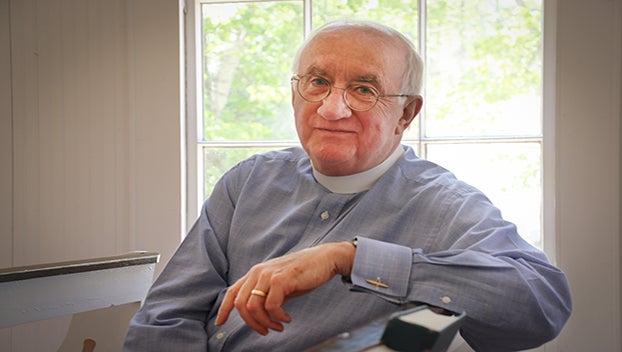“Tending Miss Emily”: A caregiver’s denial
Published 5:56 pm Saturday, August 23, 2014
by Emily Albera, former caregiver
Sometimes we are ashamed of how we feel; nevertheless, those feelings still exist: When Mother first exhibited memory problems, I was in denial, disbelief. This is how I felt:
How can my mother be so STUPID??!! Here’s a woman who has been a banker, supported herself and her two children, my sister and me, and put us both through college. I don’t care if she is 82 years old. My mom can’t possibly have forgotten to pay the electric bill on the farm. Now the farmers are concerned because the electricity is off, and they can’t cure the tobacco without electricity. There must be a mistake — being an accountant and a reasonable businesswoman, Mother always pays her bills — well ahead of the due date.
How can my mother be so MEAN?! “Miss Emily,” as people fondly call her, has been so pleasant most of her life. Now she’s accusing my husband Jim of stealing her hoe and shovel — she saw him do it. But, worse, she’s accusing my cousin Steve, her nephew, of stealing the white metal furniture off the front porch that hasn’t been there for 40 years. Jim and I, somewhat embarrassed, feel forced, for Mom’s peace of mind, to ask Steve diplomatically if Mom may search his barn. He readily agrees, but after hours of searching, she still isn’t satisfied. While climbing into the car, fortunately out of Steve’s hearing range, she exclaims, “He’s taken it [the furniture] somewhere else! I know he’s got it somewhere!” There is no convincing her otherwise. Something is TERRIBLY wrong with my mother.
Those were my feelings almost 30 years ago after just two events indicating that my mother was not herself. There were other signs — other bills not being paid, her driving down one-way streets the wrong way, not knowing immediate family. However, I was “in denial” almost three years. I didn’t want anything to be wrong with her — she was too important to me. Besides, she was supposed to take care of me, not vice versa. In other words, I was losing my mother.
Eventually, Mother’s primary physician sent us to a neurologist in Greenville who asked Mother many general questions, such as “What is the current year?” and “Who is our President?” She didn’t know most of the answers. After many tests, the doctor concluded that my mother had Alzheimer’s disease.
Twenty-seven years ago was before Ronald Reagan’s condition became well known; therefore, many people, including myself, knew little about this disease. I had to educate myself. At the neurologist’s suggestion, I read “The 36-Hour Day.” The book was depressing, but informative. Chapter by chapter I learned about the downward spiral from adult to infant that these victims suffer. I learned that the twelfth time they repeat themselves is the first time to them. I learned to blame the change in her behavior on the disease, NOT my mother. My mother was given four years to live; she lived 18 years with the disease. As a sole caregiver, I had a lot to learn.
Emily Albera is co-chair of the Washington Alzheimer’s Walk and a former caregiver. For more information on the Sept. 27 event, contact her at 252-946-2192.





